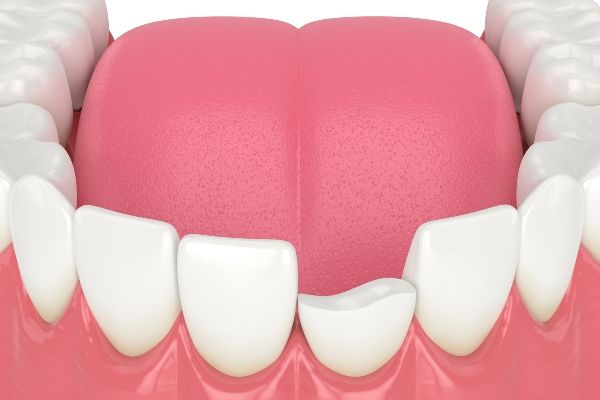When Would a Dentist Recommend a Tooth Extraction?
is typically used as a last resort when a tooth is too damaged to be repaired. Wisdom teeth are the exception to this practice because they are the only set of teeth that most people do not need. However, dentists often recommend extracting wisdom teeth even if they are healthy, and it is typically the first option explored when something goes wrong with a wisdom tooth.
Reasons for tooth extraction
Tooth extractions are often necessary dental procedures, especially when they affect surrounding teeth, gums, and bones. They may sound intimidating, but extractions are common and provide many benefits in keeping the oral cavity healthy. A variety of tooth-replacement options are available, including tooth-colored crowns that keep patients' smiles in line. With proper care and maintenance, tooth replacements can last up to a decade. We encourage all patients to read and understand the tooth extraction procedure before coming to their appointment.
There are multiple reasons a dentist might recommend a tooth extraction. Reasons include creating space in a patient's jaw, removing a tooth that is too damaged to be saved, and preventing a severe tooth infection from spreading to other parts of the body. Additionally, the dentist may need to remove the few teeth left on a dental arch so the patient can explore missing teeth solutions like dentures and implant-supported dentures.
Signs and Symptoms of a Compromised Tooth
Many patients are unaware that their tooth requires extraction until a dentist tells them. However, in most cases, certain signs and symptoms present themselves well before the need for extraction. It is important to recognize these signs to help avoid more complications.
Common signs and symptoms of a tooth requiring extraction:
- A loose tooth
- An impacted baby tooth
- Difficulty or pain when chewing
- Jaw pain, soreness, or stiffness
- Spacing or overcrowding issue
- Swollen gums or jaw
- The tooth or gum tissue surrounding a tooth is infected or inflamed
Patients experiencing these symptoms should immediately contact their dental provider to schedule an examination. We can discuss an effective course of action and recommend alternative treatments for those unable to undergo an extraction.
How dentists perform a tooth extraction
There are two main types of dental extractions: simple and surgical. We perform a simple extraction when enough is left of the tooth to pull it out with forceps. A surgical extraction is performed when the tooth is stuck underneath the gums or bone tissues. The dentist will have to make an incision into the patient's gum tissues to reach the tooth, pull it out, and suture the area. Surgical extractions have a longer recovery period because an incision is made into the gum tissues.
Local anesthetics are administered during extractions so patients do not feel pain while the dentist works on their mouth. However, they may experience some pain and discomfort once the anesthetic starts to wear off. Therefore, dentists often provide their patients with prescription painkillers to help manage any pain experienced during recovery.
Life after tooth extraction
It can take up to two weeks to recover from an extraction. However, the first week is the most crucial period because the blood clot that forms on the extracted tooth's socket is most vulnerable at this time. In addition, the blood clot falling out of its socket leads to a painful condition known as dry socket, which lengthens the recovery period. Simple things that patients can do to help make their recovery smoother include:
- Avoid eating, drinking, or talking for the first few hours after tooth extraction.
- Stick to liquid and soft foods for the first week after the procedure.
- Avoid sucking, such as drinking through straws, spitting, or smoking.
- Avoid brushing and using oral hygiene products for the first two days after an extraction; rinse the mouth with a saltwater solution.
- Use any painkillers or antibiotics prescribed as recommended by the dentist.
- Avoid strenuous activities for the first two days after having a tooth extracted.
- Aim to get as much rest as possible.
- Do not touch or irritate the extraction site, as that can dislodge the blood clot in the socket.
Extractions protect your health
Do you need to have a tooth pulled? Our team has you covered. We may diagnose and recommend a tooth extraction after an initial consultation or examination. Then, we can help you get back on track to building and maintaining a healthy mouth and bright smile. Give us a call or stop by our Miami Beach clinic to set up an appointment.
Please request an appointment here: https://dentistmiamibeachfl.com for an appointment in our Miami Beach office.
Check out what others are saying about our dental services on Yelp: .
Recent Posts
Tooth extraction is sometimes needed to improve your overall oral health. Your general dentist will discuss the need for this procedure if they feel it is necessary to prevent new decay around the already decaying tooth. You want to maintain the best oral hygiene habits to ensure you keep your original teeth for the longest time…
Decay, infections, and overcrowding are all reasons for tooth extraction. According to Healthline, it is the oral surgical procedure most often performed. Like any operation, an extraction can put the patient at risk for an infection or other postoperative complications. Patients should observe the surgical site following extraction to look for potential problems. However, it…
Although adult teeth are meant to last for a lifetime, tooth extraction is often necessary as people age. This may be for a number of reasons, including but not limited to tooth decay, trauma, a crowded mouth or a badly damaged tooth. If you recently had a tooth extracted, it is important to know what…
The process involves some recovery time but only takes a day. You'll end up with a painless smile.Among the milestones you reach in life from your first steps to learning to drive, wisdom teeth extractions may be necessary. While the process may not sound appealing, it can provide immediate relief and prevent further oral health…


